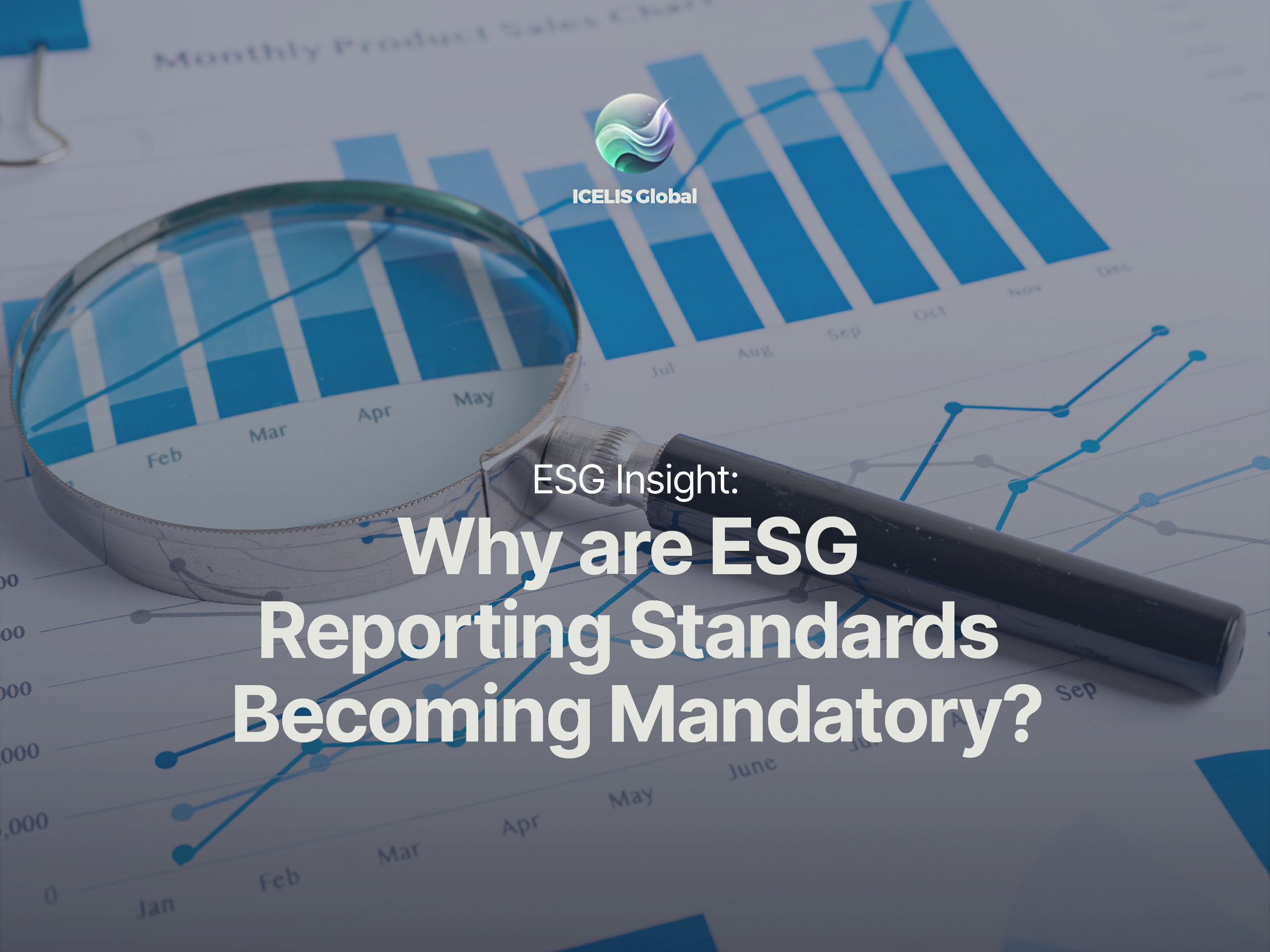Introduction
As investors, consumers, employees, and other stakeholders continue to gain awareness of sustainability, they have come to demand accountability from businesses. This, in turn, has left companies with no choice but to embrace “Environmental, Social and Governance” (ESG) measures in their strategic planning. ESG measures and reports on how business management is impacting the environment and society by providing analysis on their ESG impact.
According to PWC, it is a balanced scorecard going beyond financial reporting to measure, analyse, and report on the environmental, social, and governance impact businesses are having as well as the risks and opportunities they face. It is one of the ways companies show accountability and commitment to being sustainable through sustainability reporting.
In this ESG Insight, we break down how ESG reports work and why reporting standards are becoming mandatory.
How Do ESG Reports Work?
ESG reports are usually published by companies on their environmental, social, and governance (ESG) impact. Sustainability reporting has now become the norm, as a significant 96 percent of the G250 companies in the world put sustainability reports annually. KPMG records a 61% increase in sustainability reporting from 1999 to 2024, proving that sustainability reporting is the new norm.
An ESG reporting standard gives detailed and measurable requirements that guide how the ESG impact of a company is reported. It is meant to communicate clearly to interested parties the impact of the reporting company on the environment and society, as well as assess any current or possible opportunities or risks the company might face.
As a type of sustainability reporting, ESG reporting plays a vital role in informing the public, about a company’s activities and sincerity in ensuring that its operations do not adversely impact the environment or society. The reality is ESG reporting is influencing many companies’ decision-making and commitment to sustainability.
Why are ESG Standards Becoming Mandatory?
ESG reports can also influence a company’s reputation, investment, and patronage. As a result, having standards for reporting on the ESG impact of a company’s activities is of great importance. As ESG and ESG reporting become the norms, having a standard for these reports is becoming mandatory, and here are some reasons for this:
Regulatory Compliance with Reporting Standards.
Just as ESG is being integrated into strategic planning laws are, to a significant extent, making it compulsory to have ESG reporting standards. For example, the Corporate Sustainability Reporting Directive (CSRD) makes it mandatory for large companies to comply with the European Sustainability Reporting Standards (ESRS) which contains 12 mandatory sectoral standards. In such instances, the ESG reporting standard has become vital for curating annual sustainability reports.
Report Credibility
There needs to be a minimum quality threshold for ESG reporting. These standards make people trust what they see in an ESG report. Reporting standards make a report respected and recognised. Subpar reports will eventually lead to loss of credibility and loss of value for the report in general.
Corporate Transparency
By complying with ESG reporting standards, companies can make themselves transparent in their reporting as they follow neutral ESG standards that can truly reflect their ESG impact.
Tangible Metrics
ESG reporting standards give guidelines that help identify and make use of relevant measurable metrics that can be used to assess the ESG impact of companies. Companies on their own may fail to identify and curate reports on the relevant metrics needed to assess the ESG impact of their company, and so ESG reporting standards are becoming mandatory.
Preventing Greenwashing
Prevention of greenwashing is making ESG reporting standards mandatory. To prevent manipulation of reporting tools that lead to selective reporting that does not accurately depict the ESG impact of a company, ESG reporting standards are becoming a requisite to ESG reporting.
Conclusion
ESG reporting is here to stay, and alongside it, ESG reporting standards are becoming inescapable.
Some of the various reasons why ESG reporting standards are becoming mandatory have been examined, but the one thing to note is that these ESG reporting standards help create high-quality reports that are credible and recognised.
Frequently Asked Questions
What is ESG reporting?
ESG reporting is a sustainable report which companies make that holds them accountable for their environmental, social and governance activities.
It goes beyond the financials and can significantly influence company leaders to make sustainable decisions.
Why are ESG reporting standards necessary?
ESG reporting standards are vital as they give an ESG report credibility, transparency, tangible metrics, and also curbs greenwashing.
